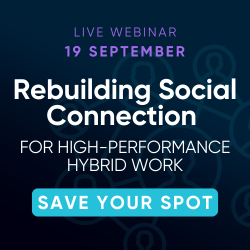October 23, 2023
People who work full time from an office now outnumber hybrid workers
 British workers who come into the office every day to work now outnumber those who spend part of the week working from home, for the first time since the end of pandemic restrictions, according to a new survey from recruitment firm Hays. Of nearly 15,000 white-collar staff and employers who took part in the poll last month, around 43 per cent said they were now working entirely from the office, up from 36 per cent a year earlier. Meanwhile the proportion of people who said they spend some time working from home, fell to 39 per cent from 43 per cent in 2022. Fewer than one in five now work entirely remotely. (more…)
British workers who come into the office every day to work now outnumber those who spend part of the week working from home, for the first time since the end of pandemic restrictions, according to a new survey from recruitment firm Hays. Of nearly 15,000 white-collar staff and employers who took part in the poll last month, around 43 per cent said they were now working entirely from the office, up from 36 per cent a year earlier. Meanwhile the proportion of people who said they spend some time working from home, fell to 39 per cent from 43 per cent in 2022. Fewer than one in five now work entirely remotely. (more…)


































September 27, 2023
Hybrid working is here to stay. Squawk
by Mark Eltringham • Comment, Technology, Workplace design